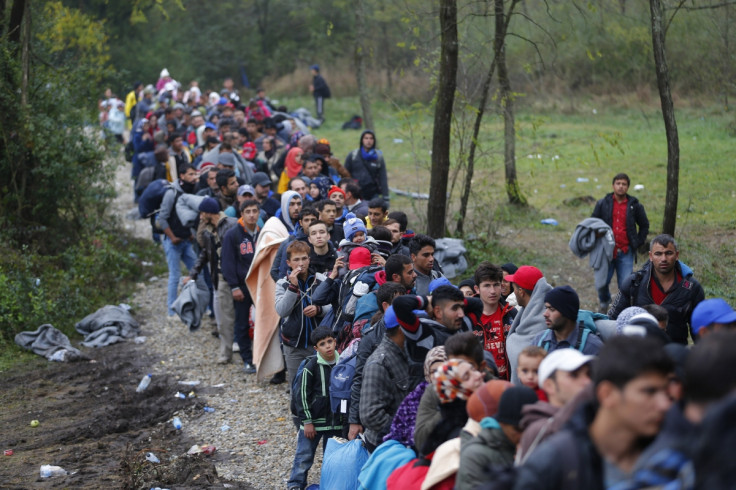Migrant backlog at Balkan borders as the EU seeks Turkey's help

Thousands of migrants continue to flock to the Balkan states causing a build up along the borders as the European Union looks to Turkey for help to stem further flows of aslyum seekers to the bloc. With the EU still failing to draw up a definitive plan, the Balkan states have come up with their own solution to the problem - diverting the human traffic and imposing border controls.
About 40 buses packed with migrants waited at Serbia's border with Croatia as their entry into western Europe was being diverted through Slovenia, which is already overwhelmed by the sheer number of people. It has said it would only accept the number of refugees who are able to exit the country directly to Austria.
"Croatia asked us to accept 5,000 migrants per day, but Austria told us they can accept at maximum 1,500. We cannot accept unlimited numbers of migrants if we know that they continue their journey," Bostjan Sefic, state secretary at the Slovenian Interior Ministry said at a news conference.
"If we would accept 5,000 migrants per day that would mean 35,000 would be in Slovenia in 10 days ... that would be unacceptable. We insist on balancing inflows and outflows of migrants on a daily basis ... and for now we will not change that decision," he said.
More than 4,000 migrants have arrived in Slovenia from Croatia after Hungary closed its southern border at midnight on Friday. In September, Hungary closed its borders with Serbia, again forcing refugees to seek alternative routes into Western Europe.
Although bus and trains crossing Croatia and Slovenia moved smoothly over the weekend, by Sunday, a buildup started after Slovenia decided it could not take any more refugees unless they were accepted by Austria. Scuffles were reported as Croatian riot police tried to block the migrants trying to enter the country.
Croatia has come under pressure as Serbia has done little to moderate the flow of new refugee arrivals and with the Hungarian border now blocked and Slovenia insisting on limiting the number of people passing through its borders to Austria. Croatia goes to the polls on 8 November, with the centre-left government facing growing popularity for the right-wing opposition party which is urging a tougher line on the migrant problem.
Reuters said that the huge flow of migrants this year to Europe has exposed "deep and often ugly divisions in the EU." Hungary's right-wing government has been repeatedly saying that the mainly Muslim migrants pose a threat to Europe's prosperity, security and "Christian values", leading its unilateral crackdown in stemming their flow in the bloc.
Concerns over impending winter
Aid agencies are concerned about the backlog, especially with winter well on its way. "This part of the trip has lasted 20 hours, and we've been here for almost 12 hours," said Khair, 40, a former sales manager from Damascus. "What can we do? We're here and we have to wait."
Bus driver Miroslav said: "We've been here for 20 hours. We need water, food. There are women, babies in the bus. Who on earth coordinates this? It's a mess."
German Chancellor Angela Merkel is in Turkey in an attempt to persuade Turkey to accept the EU's action plan. Turkey in turn is trying to play hard ball by demanding not only more money but also to re-energise EU membership talks.
© Copyright IBTimes 2025. All rights reserved.






















